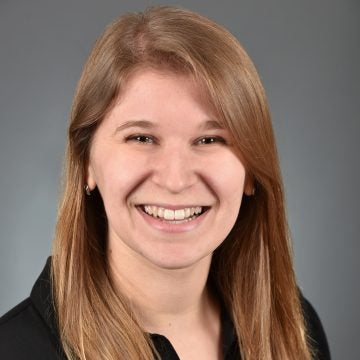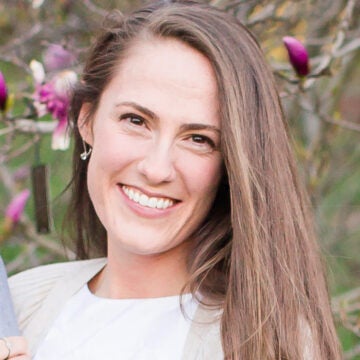Health clinics in CA, MA, NC, and TX to participate in pilot project to address climate risks to operations and human health, improving patient care
BOSTON, Mass., April 21, 2021 – More intense hurricanes, unprecedented wildfires, increasing heatwaves, air pollution, and other challenges threaten the ability of community health clinics to care for their patients on the frontlines of the climate crisis. For instance, during the 2019 wildfires in California, health clinics had to choose between keeping their electronic health records system online or running their refrigerators to protect temperature-sensitive vaccines. To help health clinics across the country enhance their own climate resilience and continue to care for patients, clinics in California, Massachusetts, North Carolina, and Texas are participating in a pilot project to address climate risks.
Working with Americares and with financial support from Biogen, the Center for Climate, Health, and the Global Environment at Harvard T.H. Chan School of Public Health (Harvard Chan C-CHANGE) will identify, support, and prepare clinics to address climate-related impacts on health and healthcare delivery to help buffer risks to the patients they serve and improve health outcomes.
“While climate resiliency is often about strengthening buildings, what makes our project so unique is our focus on the people inside those buildings. We aim to find new ways to protect people most at risk from the climate crisis and advance health equity,” said Dr. Aaron Bernstein, Interim Director of Harvard Chan C-CHANGE. “With this project, our hope is that a person with a chronic medical condition like heart disease, dementia, or asthma is better equipped to manage their care when facing routine stressors like poor air quality days and when care itself is harder to get to. Climate change can compromise access to power, medications, and medical records and our goal is to work with care providers and clinics to develop resources that can reduce the chances of harm in increasingly common events like heatwaves or when disaster strikes.”
From the Texas winter storm to heatwaves in the South, to vector-borne diseases in the Northeast, to wildfires in the West, the climate crisis is leading to changing needs for routine patient care as well as widespread disruptions at community health clinics through destroyed healthcare infrastructure, power outages, and fragmented supply chains. Hurricane Maria’s landfall on Puerto Rico devastated the island and caused national shortages of intravenous saline, a backbone of basic medical care, due to supply chain disruptions. The flooding from Hurricane Harvey was so severe that a regional medical center permanently closed, and 44 surrounding hospitals and clinics had to evacuate more than 1,500 patients.
Heatwaves create widespread health risks from climate change, yet few medical institutions are prepared to systematically address this challenge at the clinical level, starting with knowing which patients are at risk and ensuring they have a plan for interventions that are needed like staying hydrated, planning for access to air conditioning, knowing where to go if the power fails, and being mindful of medications that may increase the development of heat-related illnesses.
“Communities served by our clinics are where the rubber hits the road in terms of the climate crisis. We are often one of the few touchpoints people can look to in the community for help,” said San José Clinic Chief Operations Officer Neena Arora. “There’s nothing more important than getting into the trenches on the frontlines to understand our needs and risks to form the foundation of the resources that get developed.”
Biogen is providing financial support for this initiative. Working with Americares, a global relief and development organization that supports health centers and people affected by poverty and disaster, Harvard Chan C-CHANGE will develop a Climate Resilient Clinics Toolkit for clinics in each region of the United States that includes:
- Clinician screening checklists for assessing patient vulnerability to climate change;
- Disease management plans for patients and providers to prepare for heatwaves and other extreme events; and
- Decision trees for clinic management during extreme weather.
Participating clinics will provide information on knowledge gaps, real-world challenges, and opportunities for interventions for their specific patient populations. Additional steps will include providing educational resources and scaling the project across the country and eventually internationally. Up to 150 clinics are expected to benefit from the project over the next three years.
“Our goal is to develop core tools and resources that can be built upon to transform how we safeguard patients living in regions prone to flooding, extreme heat, and severe storms,” said Americares Associate Director of Emergency Preparedness Mariel Fonteyn. “This project is the first of its kind to focus on safety net clinics and the unique needs of low-income families disproportionately affected by climate change.”
“As part of our initiative to address the interrelated challenges of climate, health, and equity, we are delighted to support Harvard Chan C-CHANGE and Americares to strengthen healthcare system resiliency to help improve measurable outcomes for underserved and underrepresented patient populations,” said Maha Radhakrishnan, M.D., Chief Medical Officer at Biogen. “It is essential that we work to meet science-based targets that limit global warming to 1.5°C, while also addressing the impacts that the climate crisis is having on human health. This pioneering initiative is aimed at protecting patients from the climate health effects happening now, with a focus on those most at risk.”
In addition to working with community health clinics, the Climate MD program at Harvard Chan C-CHANGE connects climate change to the practice of medicine through researching impacts to healthcare delivery, preparing medical leaders, changing the national narrative through health messaging, and communicating directly with patients.
Community health clinics and organizations participating in the pilot project include:
California:
- The Free Clinic of Simi Valley in southern California provides critical medical care to low-income families. Its patients live with the intensifying effects of climate change, including heat and drought.
- Lestonnac Free Clinic, based in Orange County, Calif., has 13 clinic sites throughout Southern California. In 2020, due to the numerous wildfires, they saw a significant increase in patients coming into the clinic for upper respiratory issues and breathing problems.
Massachusetts
- Cambridge Health Alliance operates two safety net community hospitals and multiple primary care centers that serve several diverse communities north of Boston. Its patients are at high risk of heat-related illnesses due to urban heat-island effects, and their neighborhoods are at high risk of flooding due to rising sea levels and worsening storms.
North Carolina:
- The Community Care Clinic of Dare in the Outer Banks of North Carolina. In addition to the frequent and intensifying hurricanes that have been occurring, the clinic and patients face challenges from ongoing flooding caused by rising sea levels and increasing temperatures that have a disproportionate effect on their patients who often work outdoors.
- Kintegra Health, a community health center in North Carolina with over 30 sites. The sites and patients face significant issues from frequent flooding washing out roads and access to healthcare, as well as deteriorating infrastructure, particularly in the rural areas.
- The North Carolina Association of Free and Charitable Clinics (NCAFCC) supports 70 free and charitable clinics and pharmacies in the state by coordinating disaster response activities and supporting clinics as they provide healthcare for medically underserved North Carolinians. NCAFCC is feeling the effects of climate change and staff are called on to assist member clinics as climate change has acute and long-term effects on patient care and clinic operations.
Texas:
- Matagorda Episcopal Health Outreach Program provides critical health and behavioral health services for Matagorda County on the east coast of Texas. The facility was evacuated during Hurricane Harvey in 2017 and had many patients and staff members affected by the recent deep freeze. MEHOP is in a rural, underserved area with significant and growing challenges around access to healthcare, degrading infrastructure, and insufficient funds to rebuild after disasters.
- San José Clinic, a charity clinic in Houston, Texas, serves patients directly impacted by Hurricane Harvey and the recent winter storm and related power outages.
- Ubi Caritas, a free clinic in Beaumont, Texas, serves communities impacted by multiple hurricanes.
—
About Harvard Chan C-CHANGE
The Center for Climate, Health, and the Global Environment at Harvard T. H. Chan School of Public Health (Harvard Chan C-CHANGE) increases public awareness of the health impacts of climate change and uses science to make it personal, actionable, and urgent. Led by Dr. Aaron Bernstein, the Center leverages Harvard’s cutting-edge research to inform policies, technologies, and products that reduce air pollution and other causes of climate change. By making climate change personal, highlighting solutions, and emphasizing the important role we all play in driving change, Harvard Chan C-CHANGE puts health outcomes at the center of climate actions. To learn more visit https://www.hsph.harvard.edu/c-change/.
Press contact: Anna Miller, amiller@hsph.harvard.edu, 617-610-1620


